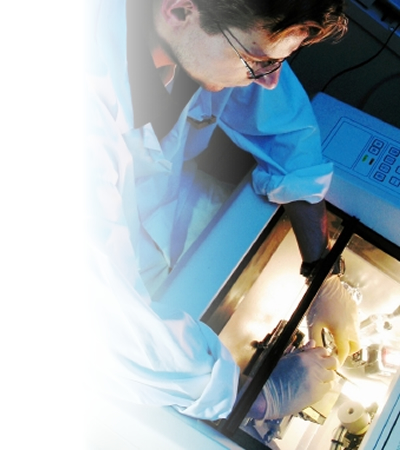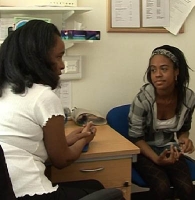Cervical Cancer and Human Papillomavirus (HPV) course for GPs



This session will discuss cervical cancer and the risks for its development, the role of the Human Papillomavirus (HPV) immunisation programme in future cervical cancer prevention, and the organisation of the UK NHS Cervical Screening Programmes. (This session was reviewed by Afsana Bhuiya and last updated on 06/06/13.)
Learning Objectives
By the end of this session you will be able to:
- Demonstrate a good knowledge of the epidemiology of cervical cancer and how this influences the policies for cervical screening
- Explain the risk factors for the development of cervical cancer and the risks and benefits of screening
- Describe the role of Human Papillomavirus (HPV) in the development of cervical cancer and the UK HPV vaccination programme
- List who does what in the NHS cervical screening programmes
- Explain the importance of informed choice and valid consent in relation to cervical screening
Before commencing this session you should:
- Complete the preceding introductory sessions in the Sexual Health and Contraception module
Philippa Pearmain has been the Deputy Regional Director of Cervical Screening Quality Assurance since 1998. Her role is to manage the day to day operation of the West Midlands Cervical Screening Quality Assurance Reference Centre (QARC). The QARC is responsible for monitoring the quality of all aspects of the NHS Cervical Screening Programmes carried out within the West Midlands strategic health authority area. This includes the collation, analysis and dissemination of nationally and regionally required cervical screening performance data from Primary Care Trusts (PCTs), laboratories and colposcopy clinics, developing and implementing policies and guidance in response to changes in national policy, organising formal visits to assess the performance of local cervical screening programmes, devising and undertaking regional and local audits, providing support in the event of potential and confirmed cervical screening incidents and providing educational opportunities for cervical screening staff throughout the region via the organisation of regional meetings and conferences. Philippa is particularly interested in primary care cervical screening issues. As a result, a comprehensive series of cervical screening fact sheets and a general practice/sample taker self assessment tool have been developed and provided to all general practices within the region. Philippa is actively involved in the training of new and existing cervical sample takers around the region and is also involved in the delivery the cervical screening module of Warwick University’s postgraduate award in sexual health.

- Assessing Mental Capacity in Older People course f...
- Posted By eIntegrity Healthcare e-Learning
- Posted Date: 2025-01-04
- Location:Online
- Mental capacity is the ability to take actions affecting daily life. This session provides an overvi...
- Long-term Care of People with Dementia course for ...
- Posted By eIntegrity Healthcare e-Learning
- Posted Date: 2025-01-04
- Location:Online
- This session looks at the broader aspects of providing long term care for people with dementia, incl...
- Detecting Dementia in Primary Care course for GPs
- Posted By eIntegrity Healthcare e-Learning
- Posted Date: 2025-01-04
- Location:Online
- This session describes an approach to understanding the signs and symptoms of dementia in primary ca...
- Acute Confusion and 'Off Legs' course for GPs
- Posted By eIntegrity Healthcare e-Learning
- Posted Date: 2025-01-04
- Location:Online
- Common in older people, delirium, also known as acute confusional state and 'off legs' have subtle f...
- Falls Assessment in Older People course for GPs
- Posted By eIntegrity Healthcare e-Learning
- Posted Date: 2025-01-04
- Location:Online
- A third of people over the age of 65 will have at least one fall in the next year. Management in pri...







